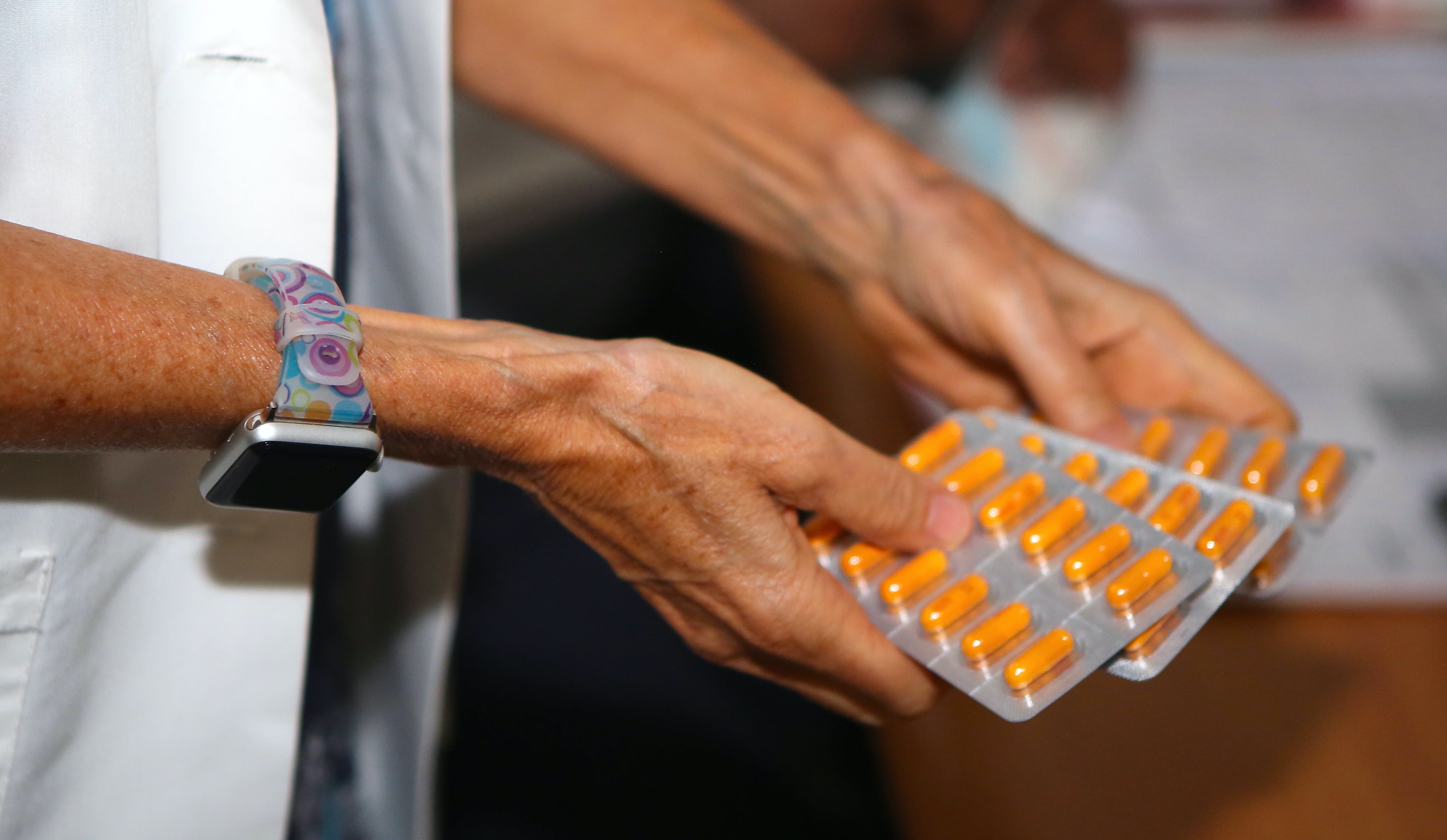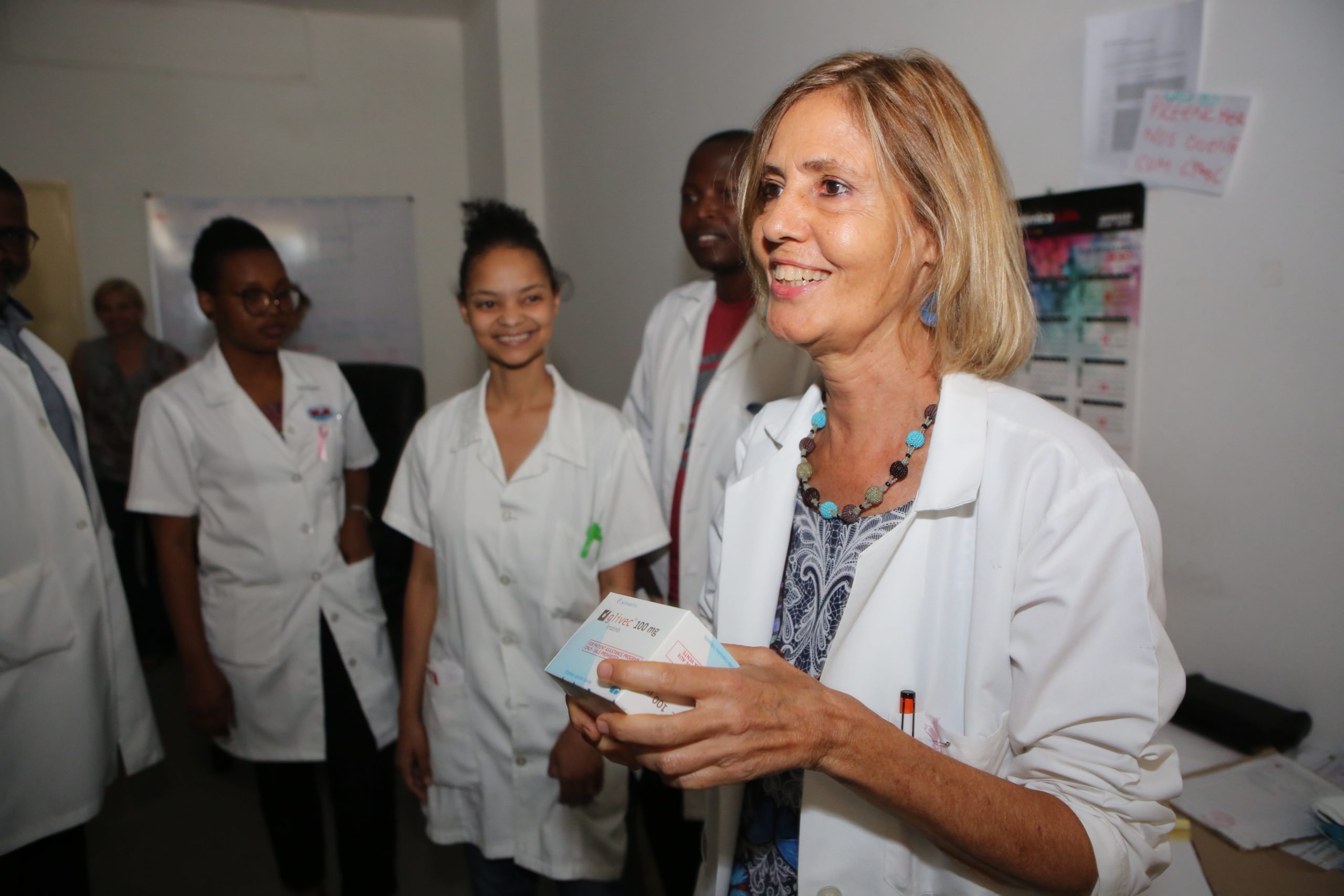I am sitting in an exam room at Maputo Central Hospital in Mozambique. With me is The Max Foundation CEO, Pat Garcia-Gonzalez, our partner physician, Dr. Patricia Silva, and her colleagues. Their patient is just about to enter the room.
It’s a monumental moment, both for the patient and for the physician. Because from this day on, Dr. Silva, a long-time clinical hematologist will be prescribing lifesaving, targeted oral therapy for the 100 chronic myeloid leukemia (CML) patients living in Mozambique.
As I look around the room, I think of the collaboration and the planning from people across the globe; thousands of tiny decisions in our lives that have led us here, together, on this day.
While Dr. Silva is consulting her patient, the power goes out. But thanks to a few windows in the room, we’re not sitting in total darkness. None of the locals react—for Mozambicans, this is everyday life. The conversation ensues. The medical staff is writing fastidious notes on their papers; when electricity is unpredictable, paper is still the best backup.
While Dr. Silva is consulting her patient and explaining his prescription, I think of all the other patients who have yet to receive their first treatment. The work here has just begun.
The case for supporting physicians

One of the things I observed at Maputo Central Hospital was the level of comfort and trust between the physician and the patient. It is remarkable because until today the doctors had no effective treatment to give. And yet the patients came back, time after time, for regular check-ups, never losing hope.
Imagine what it would be like for your doctor to know what kind of treatment you need, but have nothing to treat you with?
Health care professionals in Mozambique, and in other low-income regions of the world often rely on the process of elimination to determine a patient’s disease. And even when they can sufficiently diagnose the patient, the treatment might be unavailable.
I ask myself: Up until treatment arrived from across the globe, how have they been treating these patients with so little resources? The answer is via outstanding compassionate care.
These physicians must think and work outside the box, stretch the resources they do have to last longer, and most importantly, keep the patients coming back for their checkups. Their creativity and grit are astounding.
When treatment is unavailable, physicians spend more time with their patients, listening to their grievances and comforting them with whatever hope they can provide them with. This type of work takes tremendous patience and trust.
Here is what I learned: When you give toward access to treatment, you are supporting top physicians and hematologist to provide the best possible cancer treatment.
Physicians in low- and middle-income countries can provide world-class care when they have access to diagnostic testing and medicine.
Thanks to the many donors and partners who supported The Max Foundation’s growth into Mozambique, Dr. Silva and her team are now able to treat their patients with medicine that saves lives.
Their wait might be over, but our work is just beginning. We need your help to continue to support physicians with access to diagnostics and treatment they lack.
Access to treatment is a lifeline for patients and a triumph for physicians and health care professionals. The sooner we help, the earlier they can detect cancer and provide lifesaving treatment to their patients.
Join us to advance access to treatment and diagnostics worldwide: Donate to The Max Foundation.
Your gift takes us further
- $100 = Diagnostic testing for two patients
- $250 = Three months of treatment
- $500 = Diagnostic testing for 10 patients
- $1,000 = Treatment for one patient for one year
Support our efforts to continue bringing treatment into Mozambique throughout the new year and beyond. Make your donation today!

